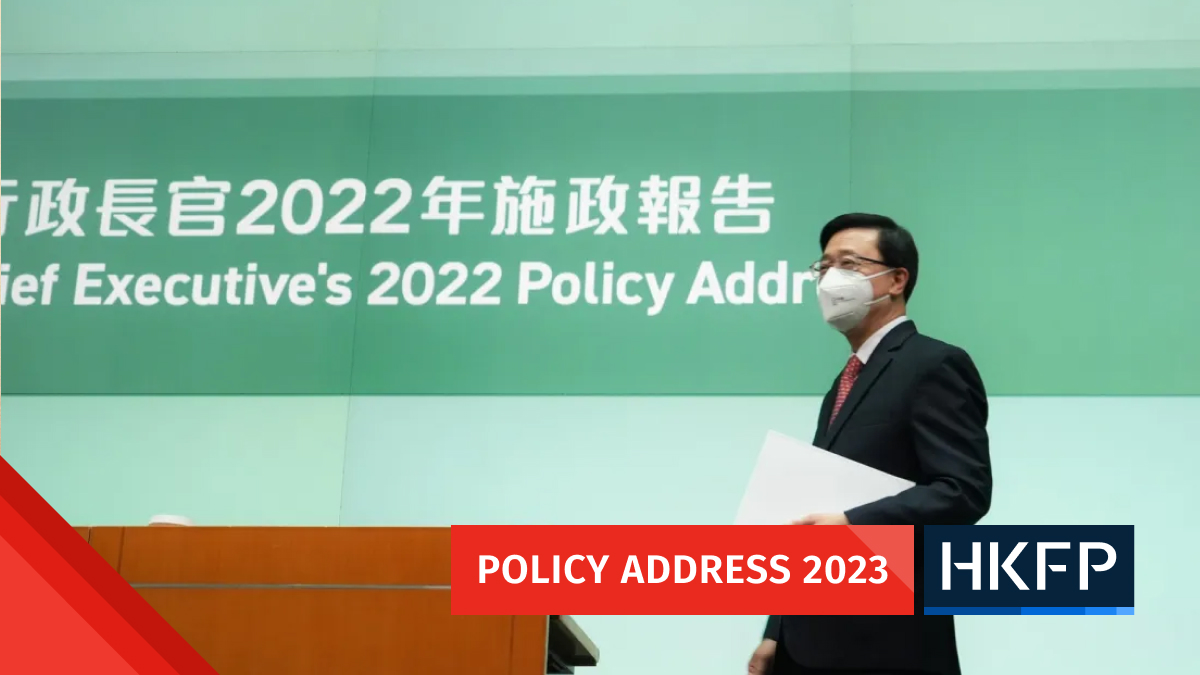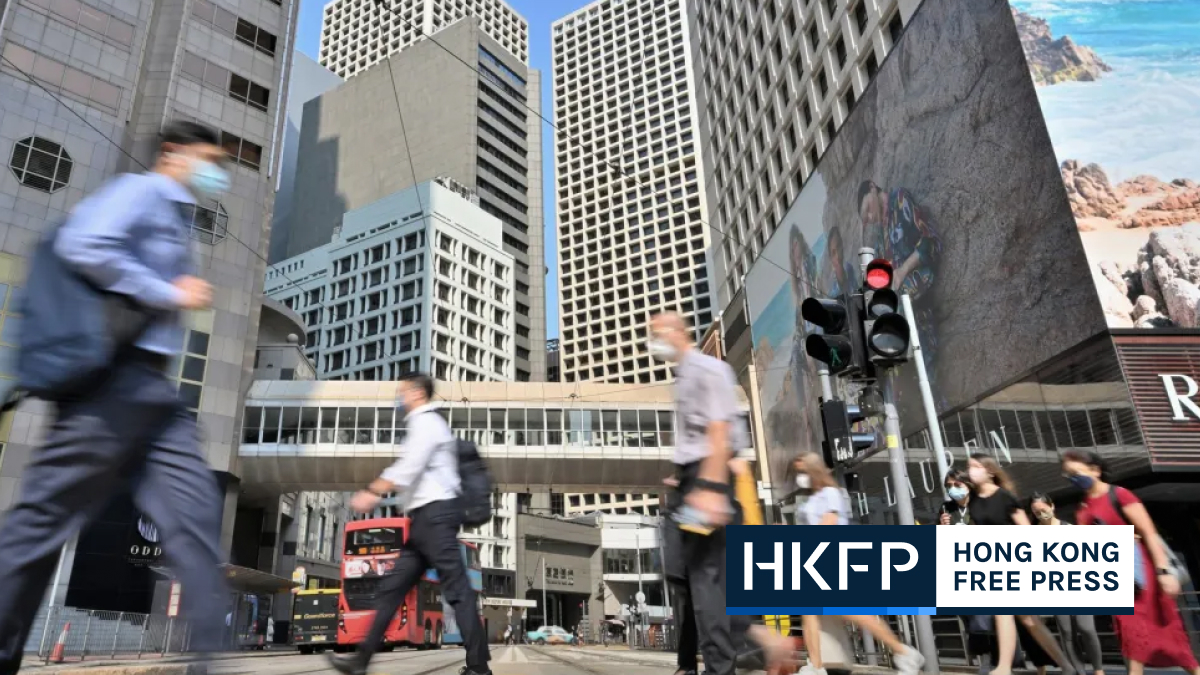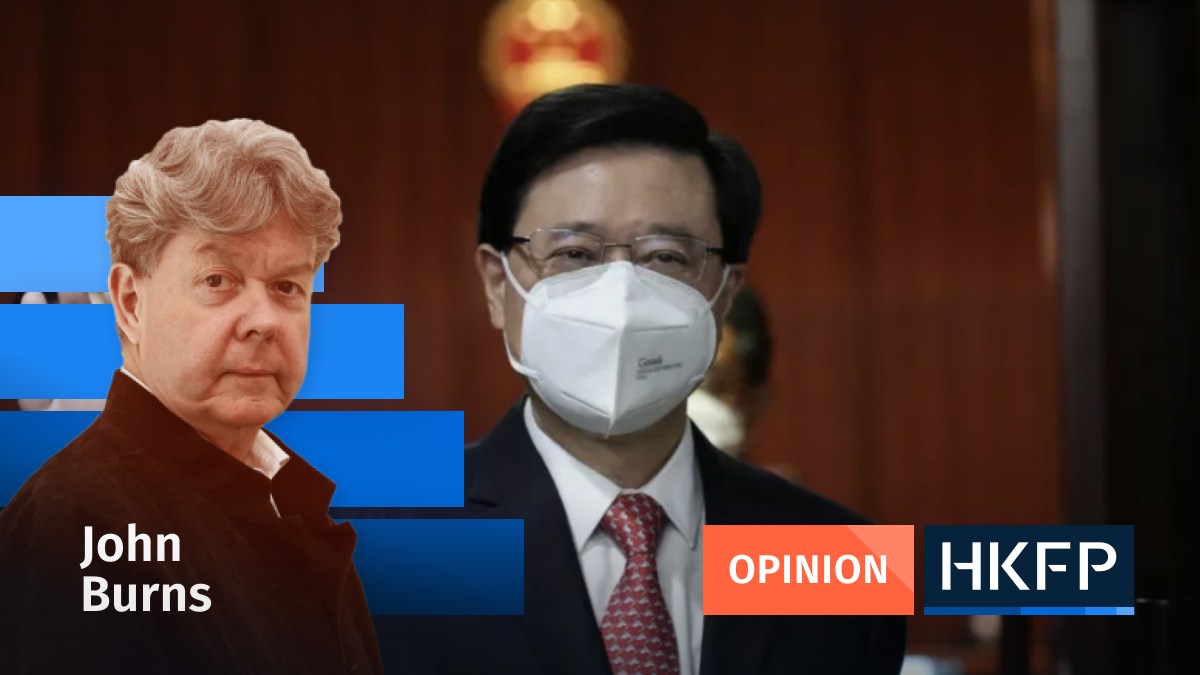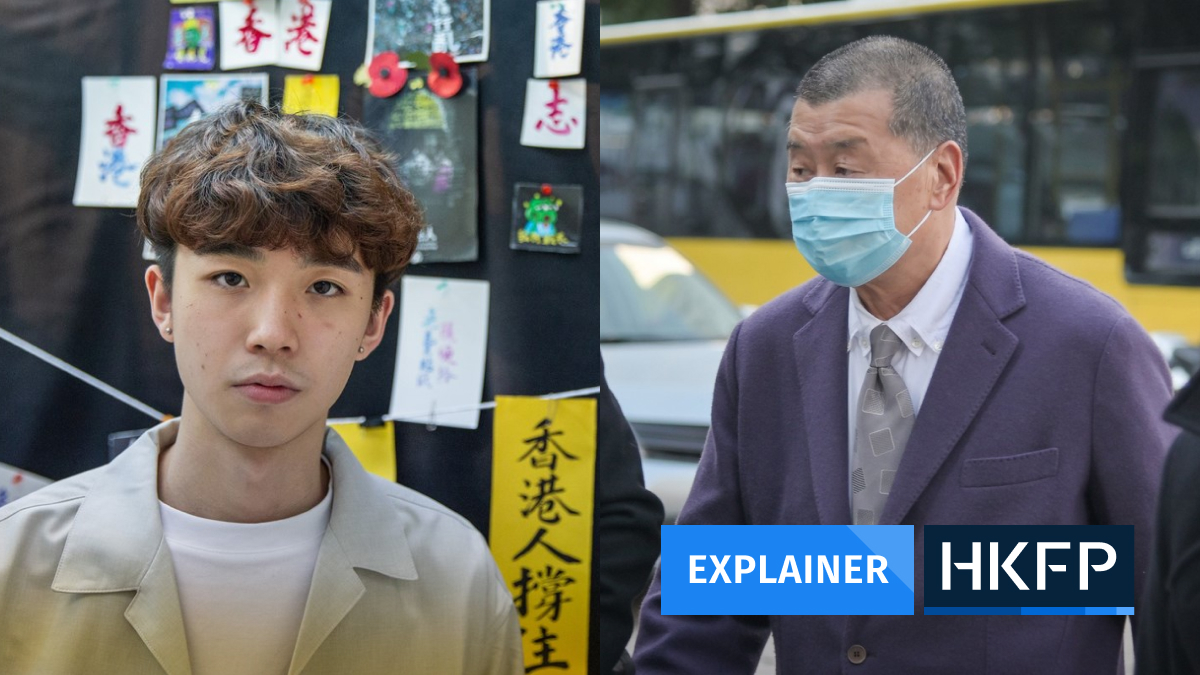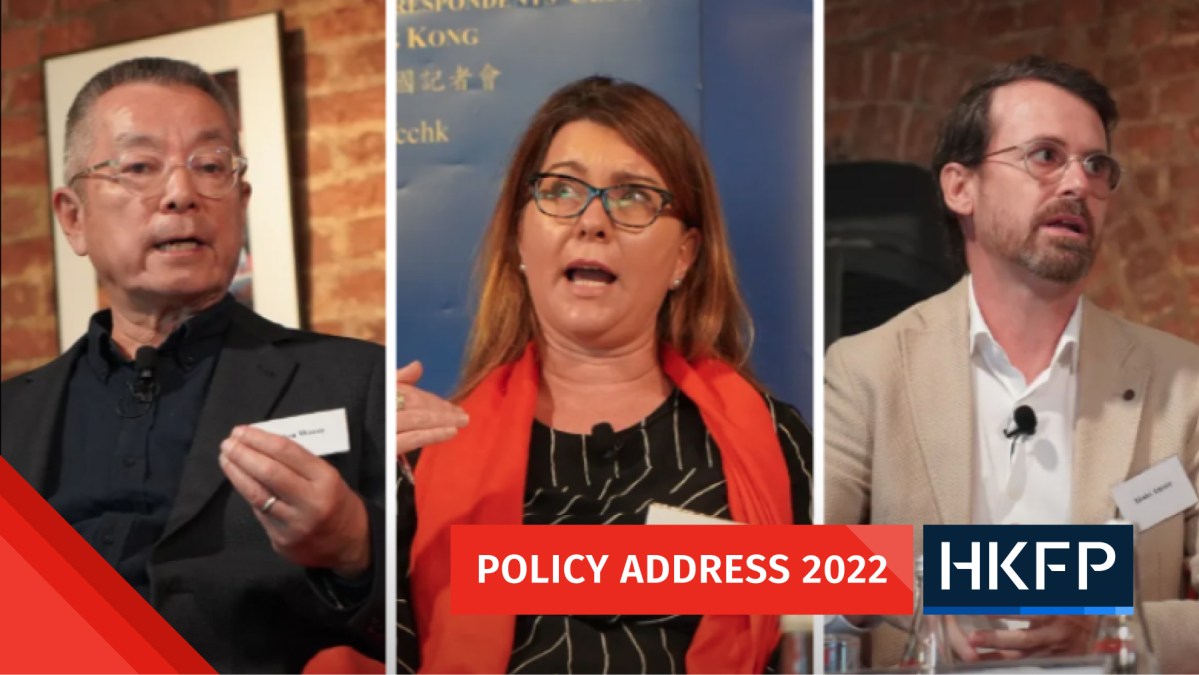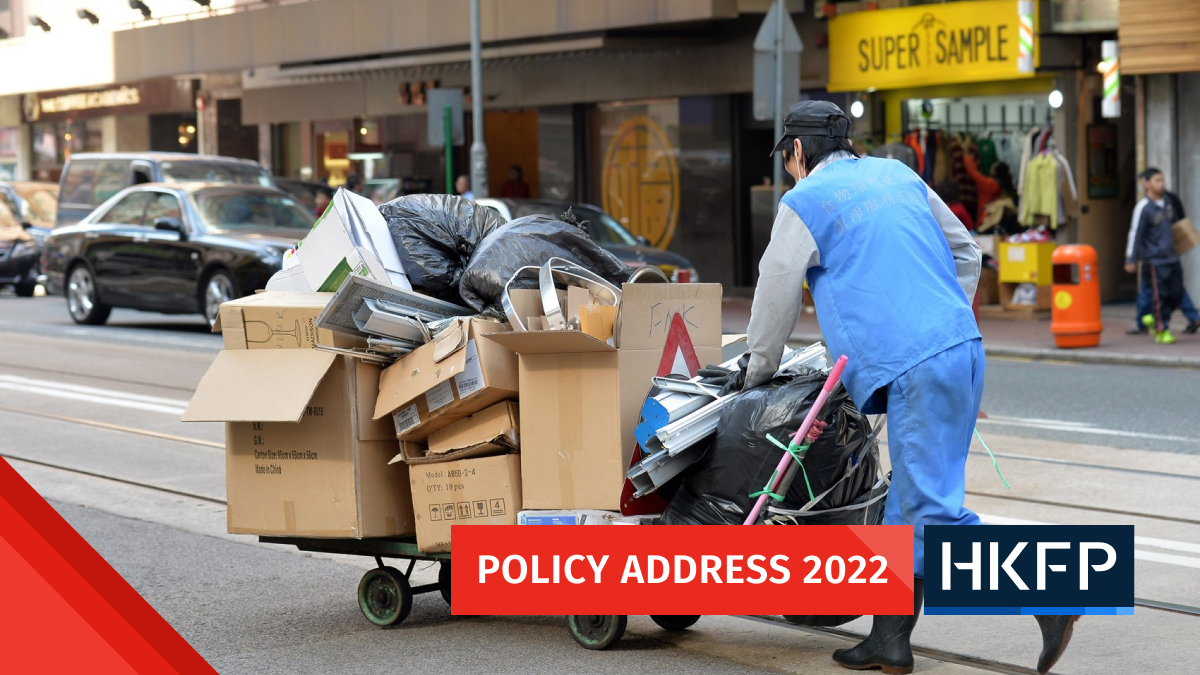Hong Kong will conduct a “review on district administration” to ensure that local councils are run in line with the city’s “patriots-only” leadership requirements, Chief Executive John Lee said during his maiden Policy Address.
The Home and Youth Affairs Bureau and the Constitutional and Mainland Affairs Bureau will conduct the review before the current District Council term expires at the end of next year.

Chief Executive John Lee said the government would evaluate the current mechanism and raising suggestions to ensure that arrangements are “in conformity with the Basic Law, in adherence to the principle of ‘patriots administering Hong Kong,’ and conducive to enhancing governance efficacy at the district level.”
Government sources told HKFP that the review was needed because some District Councillors had acted “beyond their powers” at the beginning of the current term, and because of the number of seats left vacant by mass resignations.
The results of the review, which has already begun, would be announced at an “appropriate time,” the sources said, and would aim to make sure that district administration adhered to its role as laid out in the Basic Law.
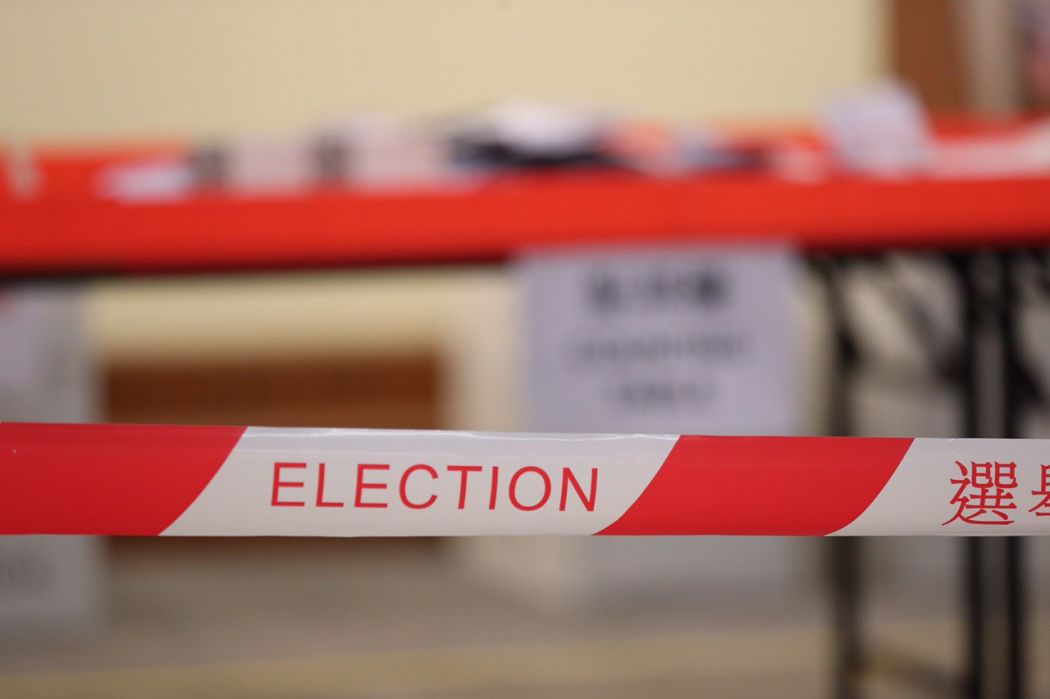
Article 97 of the Basic Law states: “District organizations which are not organs of political power may be established in the Hong Kong Special Administrative Region, to be consulted by the government of the Region on district administration and other affairs, or to be responsible for providing services in such fields as culture, recreation and environmental sanitation.”
According to a Legislative Council document, while the legislation permitted district organisations, “it does not impose any constitutional obligation on the HKSAR to establish district organizations,” adding that it “is prescriptive in that district organizations shall not be organs of political power.”
‘Invalid’ oaths
Elections for the District Councils are held every four years. During the most recent race in 2019, the pro-democracy camp gained a majority in 17 out of Hong Kong’s 18 districts.
But the city saw a wave of resignations among District Councillors last year after authorities mandated the taking of an oath swearing allegiance to the Hong Kong government. Others were ousted from office over oaths deemed “invalid.”

There are 479 District Council seats in the current term, but more than 300 are currently vacant.
Hong Kong’s District Councils advise the government on matters including public facilities and services, as well as the use of public funds, in the respective districts.
Following an electoral overhaul, only candidates deemed “patriotic” by the government are allowed to stand in elections for Hong Kong’s chief executive, Election Committee and Legislative Council. The changes effectively barred the opposition camp from political participation.

Authorities have said that the reformed electoral system contributed to the restoration of stability in Hong Kong following the anti-extradition unrest in 2019.
Lee said during a question-and-answer session with lawmakers in July that the government would propose plans for a revamp of the District Councils before the next elections. “We will review past experiences to see what went wrong, failed, or even damaged the system,” he said.
Then-chief executive Carrie Lam told reporters last July that there was “no time” to hold by-elections to fill the hundreds of vacant seats due to the Election Committee, Legislative Council and Chief Executive elections that were upcoming at the time.
Policy Address 2022 – full coverage:
Support HKFP | Code of Ethics | Error/typo? | Contact Us | Newsletter | Transparency & Annual Report

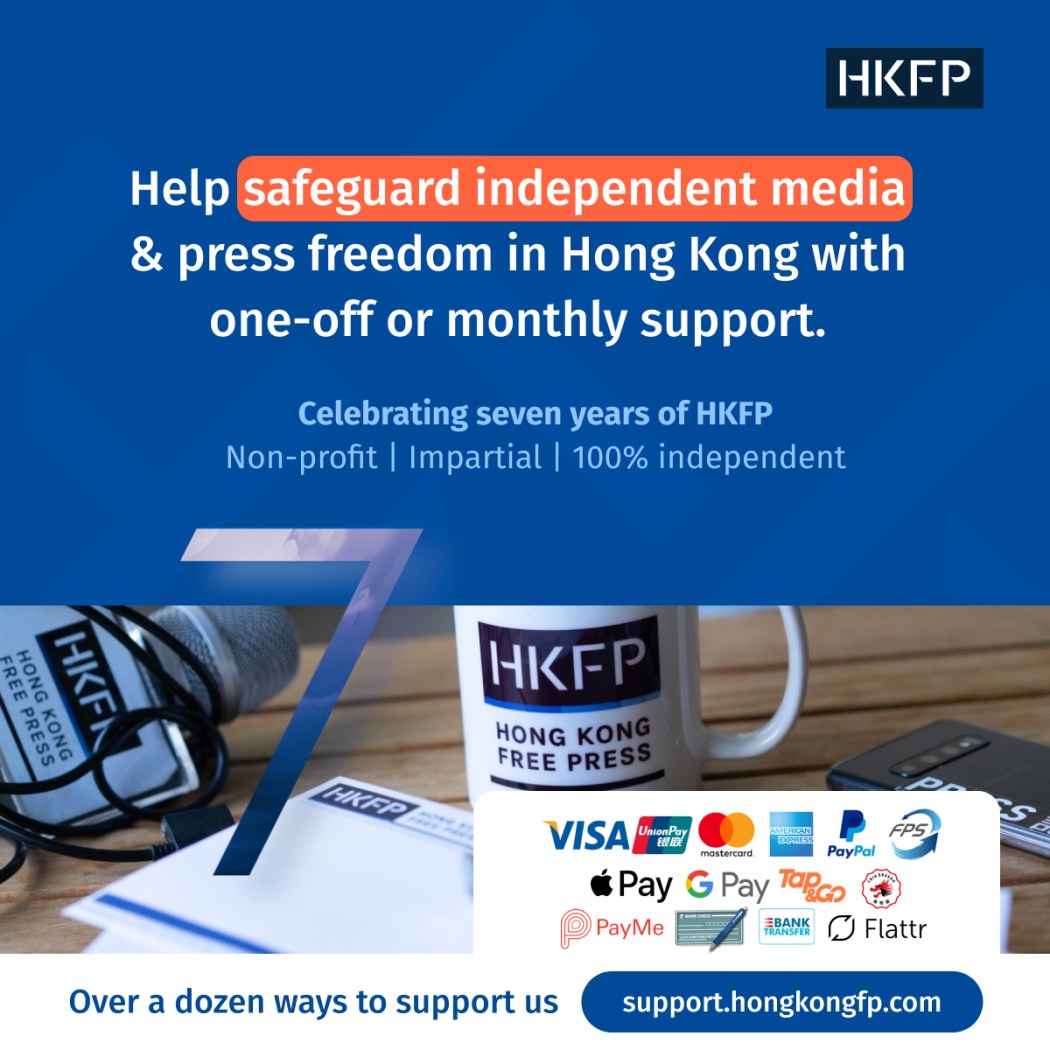
Support press freedom & help us surpass 1,000 monthly Patrons: 100% independent, governed by an ethics code & not-for-profit, Hong Kong Free Press is #PressingOn with impartial, award-winning, frontline coverage.

